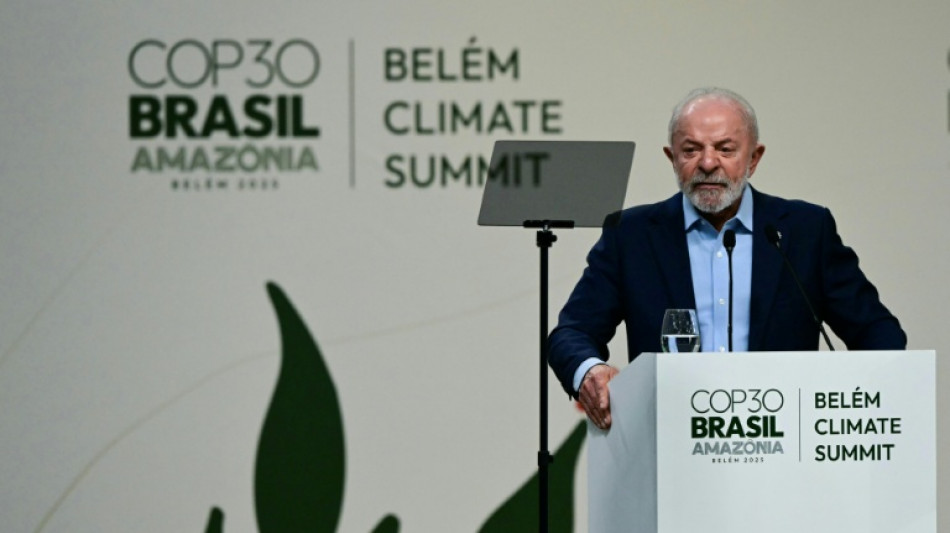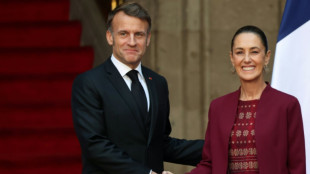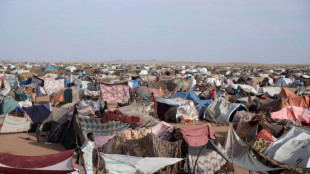

Earth 'can no longer sustain' intensive fossil fuel use, Lula tells COP30
Brazil's President Luiz Inacio Lula da Silva on Friday said Earth cannot sustain humanity's dependence on fossil fuels and without confronting this reality the climate fight will be lost.
The leftist leader spoke at a pre-COP30 summit in the Brazilian Amazon where other heads of state and government implored all nations to start weaning off the burning of coal, oil and gas responsible for most of planet-heating pollution.
Evidence of dangerous warming has never been clearer: the decade since the Paris Agreement has been the hottest on record, marked by intensifying hurricanes, heatwaves and wildfires.
Lula said tackling the urgent question over the future of energy would determine "success or failure in the battle against climate change," he added.
"Earth can no longer sustain the development model based on the intensive use of fossil fuels that has prevailed over the past 200 years," Lula told world leaders in Belem where the UN climate talks are taking place.
Brazil has stressed that each country would pursue its own course to "transition away from fossil fuels" -- a pact made by all nations at a previous COP in Dubai in 2023.
Lula is presiding over the world's top climate negotiations just weeks after his government approved new oil drilling in the Amazon region.
Earlier this week he told AFP and other outlets that "it's not easy" for countries to reduce fossil fuels, but that the subject could be approached through a "roadmap" developed at COP30.
Rwanda's environment minister Bernadette Arakwiye told delegates that they face a stark choice.
"We can continue with incremental progress while the planet burns, or we can rise to meet the scale of this crisis," she said.
"The fossil fuel era is drawing to a close. We must now ensure the transition is just, inclusive and equitable."
- 'Fossil age ending' -
The absence of leaders from the world's biggest polluters, including the United States, where President Donald Trump has dismissed climate science as a "con job," cast a shadow over talks, but also catalyzed calls for greater mobilization.
Spanish Prime Minister Pedro Sanchez told the summit that his country was moving forward with others to tax premium-class flights and private jets, one major source of heat-trapping emissions.
"It is only fair that those who have more and pollute more should pay their fair share," he said.
UN chief Antonio Guterres said global investment in renewable energy reached two trillion dollars in 2024 -- eight hundred million more than polluting forms of energy.
"The fossil fuel age is ending," he told an event in Belem, a rainforest city on the edge of the Amazon.
Guterres warned Thursday that the world would fail to keep global warming below 1.5C -- the Paris Agreement's primary target -- but must keep to a minimum any overshoot before returning temperatures below this safer limit.
Despite this, climate change has slipped down the agenda as nations grapple with economic pressures, trade disputes and wars, as well as the Trump administration's aggressively pushing for more fossil fuels.
- Roadmap support -
Lula lamented the "pressure and threats" that led the International Maritime Organization (IMO) to postpone a plan to curb shipping emissions, and also spoke of the need to pursue alternative fuels for transport and industry including ethanol.
And the latest round of negotiations to agree a world-first treaty on plastic -- a byproduct of oil and gas manufactured by petrochemical companies -- collapsed in August.
The idea of phasing out hydrocarbons is gaining traction in Europe. Despite their divisions, EU countries noted that they have reduced greenhouse gas emissions for more than three decades and are aiming for a 90 percent cut by 2040.
Lula's "roadmap" presented on day one of the summit -- a pathway to halting deforestation, reducing fossil fuel use, and finding the money to achieve those goals -- was applauded from the floor.
A formal anti-fossil fuel decision in Belem is unlikely, given the requirement for consensus among nearly 200 countries attending the conference.
Still, COP30 will put a spotlight on countries' voluntary pledges and their implementation, which could lead to fresh announcements on methane -- a "super pollutant" and the main component of natural gas, prone to leaking from pipelines and installations.
burs-np/klm/bgs
R.Koller--SbgTB



